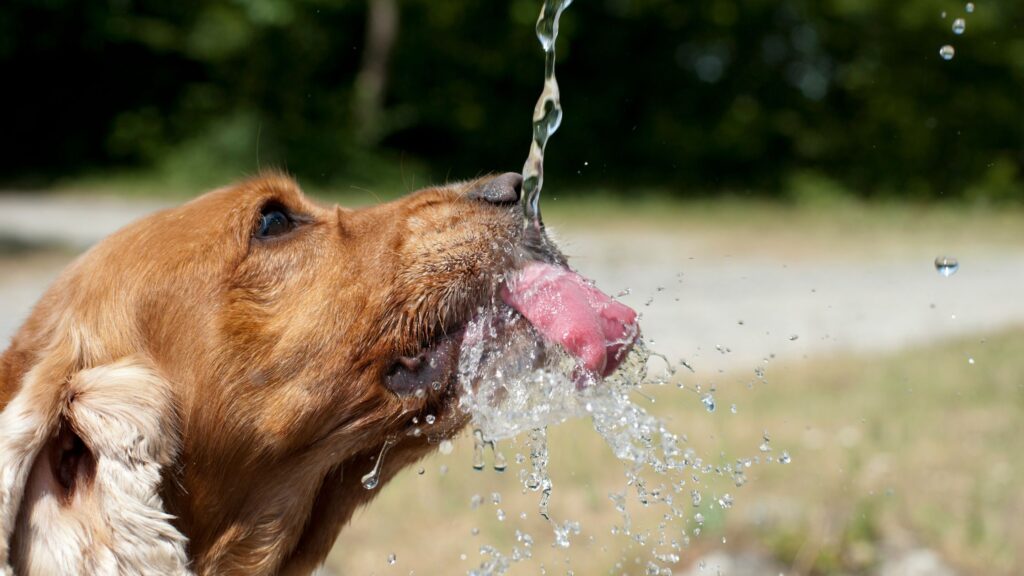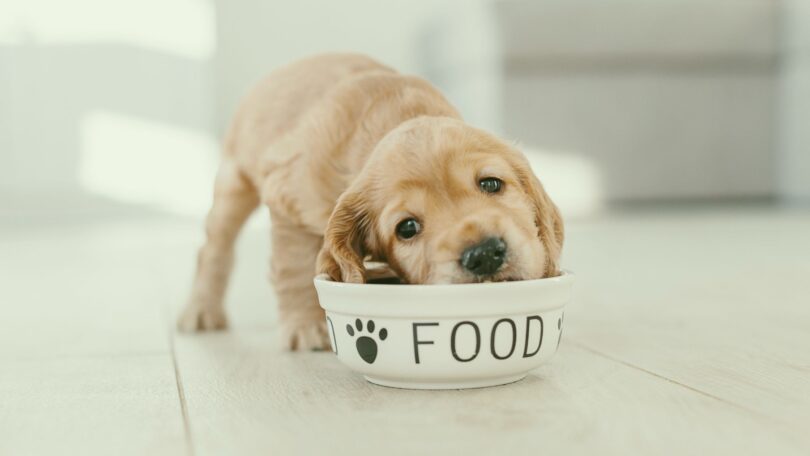As a new puppy owner, you may be wondering how much should puppies eat. It’s important to get this right, as puppies have different nutritional needs than adult dogs.
Luckily, we’ve put together a comprehensive guide on how much to feed your puppy. We’ll cover everything from how often to feed them, to what type of food is best. So read on for all the details!
How much should puppies eat according to their age and weight
Deciding how much food puppies should eat is a common concern for pet owners, as the influence of age and weight can have a large effect on how much to feed.
Puppies should be fed frequently in accordance with their age. For instance, puppies up to four months old should be fed three times per day – once in the morning, once in the afternoon and the final meal around 8 pm. After this age, they can transition to two feedings per day – once in the morning and then again at night.
When it comes to how much a puppy should eat, their weight also plays an important role; how much they should eat per serving depends on how heavy they are, with larger breeds requiring more servings than small ones. With that said, regardless of how big or small they are, all puppies need the right quantities of nutrients in order to stay healthy throughout their growth period.
For a shorter answer, make sure you check our raw dog food calculator to see exactly how much you should be feeding your puppy.

The best type of food for puppies – dry, wet, or raw
The best type of food for a puppy is undoubtedly a good quality, balanced diet. The pup’s needs should be assessed in terms of their age, breed, any specific dietary requirements and lifestyle factors before settling on a final choice of dry, wet or raw food.
Dry food is often easier to store and transport, and typically contains all the protein needed in an animal’s diet. However wet and raw foods may provide more vitamins, minerals and enzymes which can boost absorption in dogs’ metabolism. Ultimately, we recommend a natural dog food diet, however, you should make sure that whatever diet your pup is on, it is providing the right nutrition for their age and size.

How much water should puppies drink?
Puppies need to stay hydrated just like humans do, and should always have access to fresh drinking water throughout the day. If it’s hot outside, they should have extra water available, as they are more prone to dehydration.
As a rule of thumb, puppies need approximately one ounce of water per pound of body weight daily. Therefore if your pup weighs 10 pounds, he or she should drink around 10 ounces of water per day.
How often should you feed your puppy?
Finding the ideal feeding schedule for your puppy can seem like a daunting task, but striking a balance between regular meals, fruits and nutritional needs will help make sure he’s clocking in his much-needed daily nutrients and staying energized throughout the day.
Generally, puppies should be fed three times per day with two to four months old needing three small portions a day, while those five to six months will do best on two slightly larger servings.
When you get to seven to twelve months, one large meal may suffice — but puppies are growing creature so if they appear to still be hungry switch back over to two portion sizes. As always it’s best to consult with your veterinarian regarding what kind of food and how often is best for your young pup.
What to do if your puppy is eating too much or too little?
Depending on your puppy’s breed, age and lifestyle, how much he should be eating can vary. However, typically puppies around 6-8 weeks of age need to eat three meals per day. These meals should be relatively small and contain a balanced diet of proteins, carbohydrates, minerals and vitamins.
If you notice your puppy is eating too much or too little, the best thing to do is consult with your vet; they can help determine how much food your puppy needs based on his size and activity level. In addition to adjusting meal sizes accordingly, you may have to look into different types of food as puppies usually outgrow certain diets as they get older. It’s important to listen to the advice of your vet to ensure that your pup is getting the nourishment needed for a healthy life.

Signs that your puppy is not getting enough nutrition
Many puppies have unique nutritional needs that can be difficult to determine. Even if you know how much should puppies eat, there are a few common signs that your puppy is not getting enough nutrition, such as decreased energy levels and an inability to gain weight.
Other symptoms include a dull coat of fur or even patchy or scaly skin. If you are concerned about the quality of your puppy’s nutrition, look for other indicators of hunger such as constantly seeking food, mood swings or sudden aggressive behaviors. Ultimately, consulting with your veterinarian can provide the most accurate insight into your pup’s nutritional needs.
Tips for picky eaters!
For those who consider themselves difficulty eaters, meal times don’t have to be so troublesome. One way to combat picky eatings is by establishing a mealtime ritual. Simply setting aside a time and place for meals can help keep everyone on track and make meals feel more unified.
Additionally, opting for nutritious snacks throughout the day can lead to better decisions during mealtimes. With little healthy bites in between, full meals don’t seem so daunting.
Lastly, allow plenty of variety in foods when cooking. Picky eaters will feel less inhibited when feeling out new textures and flavors first with the crunch of a vegetable before moving on to the hot mess of mashed potatoes.
Ask them to give new dishes at least three tries before deciding they are unenjoyable – there might be hidden delight! With these simple strategies, it’s possible to foster an appreciation and enjoyment in food that goes far beyond mere sustenance.

Conclusion
Puppies need a lot of nutrition to grow up healthy and strong, but it can be tricky to figure out how much they should eat. The best way to determine how much food your puppy needs is by their age and weight.
We hope that this guide has been helpful in understanding how much puppies should eat and what to do if you have a picky eater. Ultimately, it’s important to consult with your veterinarian for the most accurate insight into your pup’s nutritional needs. With the right diet and plenty of love, your puppy will be happy and healthy!







